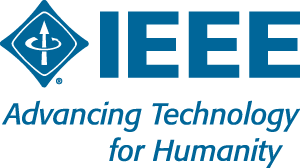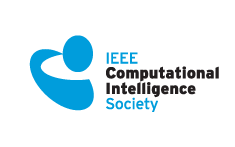2017 IEEE Symposium on Computational Intelligence in Robotic Rehabilitation and Assistive Technologies (IEEE CIR2AT'2017)
Millions
of individuals of all ages experience permanent or temporary sensor,
motor or cognitive limitations. The "cost" associated with these
disabilities includes not only those incurred through medical and
support services, but also less tangible costs, such as those due to
lost wages and non-productivity. Computer-based Assistive and
Rehabilitation Technologies offer tools, devices, systems and services
that can be used to correct, enable, maintain, or improve the
functional capabilities of individuals with disabilities. As a
relieving measure, Assistive Technologies' scope is twofold: at first,
to enable a more independent daily life, whether by providing assisted
mobility, communication, or health, and either at home, school or work;
and secondly, to offer all the benefits of an inclusive participation
in the information society, from the more passive web content
accessibility to the full participation in social media and all other
Internet services. At the same time, as a corrective measure, the goals
of Rehabilitation are to eliminate or at least ameliorate life-limiting
disabilities and facilitate community re-entry. That is, while
restoration of function is the most positive outcome of rehabilitation,
compensatory strategies are also employed when the natural functions
cannot be fully restored.
This
symposium will highlight the latest results from world leading research
labs, academia and industry in the fields of Computational Intelligence
applied to both Assistive Technology and Robotic Rehabilitation.
Topics
Topics include but are not limited to:
- Assistive Technologies for Persons with Visual Impairment
- Assistive Technologies for Hearing enhancement
- Augmentative and Alternative Communication systems
- Assistive Technologies for Persons with Cognitive Impairement
- Assistive technologies for persons with print disabilities
- Rehabilitation Robotics and Telemanipulation
- Assisting Recovery from Stroke
- Technologies to Enhance Mobility and Function for Individuals with Severe Disability (e.g. Spinal Cord Injury, ASL, Muscle Dystrophy, etc.)
- Telerehabilitation
- Wheelchair Transportation Safety
- Wheeled Mobility
- School and Workplace Accommodations
- Robotic Prosthetic and Orthotics
- Technologies for Improving Quality of Daily Living
- Recreational Technologies and Exercise Physiology Benefiting Persons with Disabilities
Accepted
Special Sessions
Send any proposals to the symposium co-chairs.
Symposium
Co-Chairs
 |
Guilherme N. DeSouza University of Missouri, USA. Email:DeSouzaG@missouri.edu |
 |
Georgios Kouroupetroglou
University of Athens. Email:koupe@di.uoa.gr |
Program Committee
- Guilherme Desouza, University of Missouri, USA
- Georgios Kouroupetroglou, National and Kapodistrian University of Athens, Greece
- Kim Adams, University of Alberta, CA
- Christian Buhler, Denmark
- Antonio Chella, Universita di Palermo, IT
- Haibin Duan, Beihang University, China
- Jerome Dupire, CNAM - CEDRIC
- Edmund Durfee, University of Michigan, USA
- Shuzhi am Ge, National University of Singapure, Singapure
- William Harwin, University of Reading, UK
- Mark Hawley, University of Sheffield, UK
- Ayanna Howard, Georgia Tech, USA
- Stefanos Kollias, University of Athens, Greece
- Hermano Igo Krebs, Massachucetts Institute of Technology, USA
- Costas Tzafestas, NTUA, Greece
- Rainer Stiefelhagen, Karlsruher Institut fur Technologie
- Tim Oates, University of Maryland, USA
- James Patton, Rehabilitation Institute of Chicago, USA
- Alexandros Pino, University of Athens, Greece
- Enrico Pontelli, New Mexico State University, USA
- Luis Rivera, University of Missouri, USA
- Nilanjan Sarkar, Vanderbilt University, USA
- Mike Van der Loos, University of Britsh Columbia, CA
- Konstantinos Votis, Information Technologies Institute, Greece






